Extreme Fatigue in Children – Causes, Symptoms and Treatment

Children are powerhouses of energy, often buzzing with excitement and making it a challenge for parents to keep pace. They run around the house and engage in playful activities, and even at night, their energy levels appear to remain undiminished; complaints of tiredness are rare. However, if your child unexpectedly approaches you, expressing feelings of tiredness and exhaustion, it could stem from various factors such as lack of sleep, overexertion, or perhaps just an excuse to skip homework. Nevertheless, it’s crucial to pay attention if your child complains of being tired all the time. Sudden extreme fatigue in a child could indicate more serious underlying health issues. It is essential to monitor these symptoms.
What Is Extreme Fatigue?
Fatigue is a condition where your child is always tired and lacks the energy to even do everyday tasks. If your child is exceptionally sleepy even after getting enough rest, it is a sign of extreme fatigue. An underlying medical condition is usually a cause of extreme fatigue. It is crucial to determine the cause of extreme fatigue in your child so that he can receive appropriate medical treatment in time.
What Causes Extreme Fatigue in Children?
Extreme fatigue can be caused by several factors which are mentioned below:
1. Poor Nutrition
Unhealthy eating habits and eating a varied, balanced diet can cause deficiency diseases and other conditions like childhood obesity that may result in extreme fatigue in children (1).
2. Depression and Mental Problems
If your child is bullied at school or if he is struggling to study, he may not always come to you and tell you his problems. Not sharing his problem and keeping things to himself may lead to mental and emotional problems, anxiety, and depression in him which also becomes a cause of fatigue, according to Harvard Health Publishing (2).
3. Cardiac or Kidney Disease
According to the National Organization for Rare Disorders, a weak heart or failing kidneys cause extreme fatigue in children, although it is rare in kids (3).
4. Allergies
Many types of allergic reactions cause our body to release chemicals that result in extreme fatigue. If your child has developed an allergic reaction to something, he might be feeling tired.
5. Epstein-Barr Virus
The Epstein-Barr virus causes an infectious disease called mononucleosis, and one of the symptoms of mononucleosis is fatigue (4). If your child is fatigued all the time, there are chances that he may have this disease. So, take him to a doctor at the earliest.
6. Anaemia
A deficiency of iron in the body causes anaemia, where there is a lack of haemoglobin in the blood to carry oxygen to the body’s cells. This can leave your child pale and fatigued.
7. Sedentary Lifestyle
A sedentary lifestyle without any physical activity can make a child lethargic and fatigued.
8. Lack of Sleep/Sleep Disorders
If your child is staying up too late at night or is not getting enough sleep due to sleep disorders like child sleep apnea or narcolepsy, it could cause extreme fatigue (5).
9. Infections
Viral infections like cold and flu also cause fatigue in children. Several infections such as dengue and hepatitis can last for weeks or months, and they result in extreme fatigue.
10. Certain Types of Immune Disorders
Disorders of the body’s immune system can cause extreme fatigue in children.
11. Hypothyroidism
Hypothyroidism is a disease where the amount of thyroid hormone produced by the thyroid gland is very low. Thyroid hormone is necessary for muscle control, digestive and heart functions, mood control, bone maintenance, and brain development. Hypothyroidism causes extreme fatigue in children.
12. Chronic Illness
Chronic illnesses like asthma, diabetes or cystic fibrosis can cause extreme fatigue in children. This happens when the illnesses are not controlled by medical treatment or by a change of diet.
13. Cancer
Although cancer is rare in children, it is one of the possible early symptoms of extreme fatigue. Hence, it is advised that you take your child to a doctor if this symptom persists for long.
14. Side Effects of Medicines
Several medicines have side effects like extreme fatigue and drowsiness. These include cough syrups and allergy medicines. Giving cold and flu medicines to children may also make them drowsy and tired.
15. Adrenal Gland Problems
The adrenal glands in our bodies produce several hormones that help us manage stress in our daily lives. If the adrenal glands of a child are not functioning properly, it may result in adrenal fatigue. Adrenal fatigue is characterised by extreme tiredness, inability to think clearly (fogginess), and stress.
16. Chronic Fatigue
Chronic fatigue syndrome in children is extreme fatigue that lasts for over six months. It begins with symptoms that are similar to the symptoms of flu. If all other causes of extreme fatigue are ruled out, the doctor may diagnose it as chronic fatigue syndrome.
Symptoms of Extreme Fatigue in Kids
According to the Centers for Disease Control and Prevention, the various symptoms which characterise extreme fatigue in children are mentioned below (6):
- Continuous yawning
- Sudden sleepiness in child
- Lethargy
- Disinterest in any physical activity or games
- Joint and muscle pain
- Fogginess and memory issues
- Swollen lymph nodes in the neck region
Apart from these, extreme fatigue combined with weight loss, bleeding nose, loss of appetite, headache, lumps or distorted vision could be a warning sign of leukaemia.
Risks and Complications of Fatigue in Children
When a child frequently feels very tired, it could indicate serious health issues. It’s important for parents and caregivers to understand the potential risks and problems associated with ongoing tiredness in children such as the ones below (7).
1. Weaker Immune System
When children are constantly fatigued, their bodies may struggle to fight off germs effectively. This decreased ability to battle infections can lead to them getting sick more often, catching things like colds, flu, and other common illnesses. Keeping an eye on repeated sickness can be a clue that their overall energy and immune system need support.
2. Trouble Thinking and Learning
Ongoing tiredness can affect a child’s brain functions such as focusing, remembering things, and solving problems. This might show up as lower grades at school or trouble understanding new information. It’s crucial to consider fatigue as a factor if a child’s academic performance starts to drop or if they seem overwhelmed by schoolwork that used to be manageable.
3. Mood Changes and Emotional Problems
Children who don’t get enough rest may become irritable or have mood swings more often. They might also start feeling unusually sad or anxious, which can further drain their energy and make them even more tired. Understanding these emotional signs can help in addressing fatigue-related issues before they affect a child’s mental health more seriously.
4. Slowed Growth and Development
Rest is essential for a child’s body to grow and develop properly. Chronic tiredness can interfere with the production of growth hormones, which can slow down their physical development. This is why it’s important for children to have a regular sleep schedule and to ensure they get enough rest each night.
5. Increased Risk of Accidents
Tired children are less alert and have slower reaction times, making them more prone to accidents. Whether it’s tripping while playing or getting injured in sports, their risk of mishaps increases when they’re not fully alert. Ensuring children have enough rest can help keep them safe during activities.
How to Diagnose Fatigue in Children?
The doctor may conduct a physical examination to check for signs of nutritional deficiencies or anemia (8). They will likely inquire about your child’s medical background, any medications they are currently taking, and if they have any allergies. Depending on the findings, the doctor might order blood and urine tests to further investigate. Additionally, the healthcare provider might employ diagnostic imaging techniques like X-rays or MRI scans to identify any underlying conditions that could be contributing to the child’s fatigue. These comprehensive assessments help pinpoint the exact cause and ensure that any treatment provided is tailored to the child’s specific needs.
How to Treat Extreme Fatigue in Children?
In order to treat extreme fatigue, your child’s paediatrician will determine the underlying cause of fatigue. Only then, will your child be treated by giving an appropriate medication or lifestyle and dietary changes. Here is how extreme fatigue can be treated (9):
1. Change of Medication
For a sleep disorder like narcolepsy, the doctor will prescribe medication containing serotonin inhibitors. This will prevent the child from falling asleep during the day. If a child’s allergy or cough medication causes extreme fatigue, the doctor will change the drug or the dosage.
2. Proper Sleep Routine
The most important treatment for extreme fatigue is a healthy sleep routine. Your child should get at least 8 to 10 hours of sleep every night. To make sure that he gets his due rest, set a fixed bedtime routine for him. That means no devices before bedtime, no heavy meals within 2 hours of bedtime, and a peaceful, dimly-lit bedroom.
3. Regular Exercise and Sun Exposure
Exercise is not just important for adults; it is equally important for kids, too! If you want your child to be healthy and active, make sure he exercises regularly and gets enough sun exposure every day. This will keep him energetic, and he won’t display any signs of fatigue.
When to Consult a Paediatrician?
You should take your child to a paediatrician in the following circumstances:
- If extreme fatigue affects your child’s schooling and daily life.
- If your child has extreme fatigue after taking prescription medication.
- If extreme fatigue lasts over a week.
- If extreme fatigue is combined with symptoms like weight loss, bleeding nose, loss of appetite, headache, lumps or distorted vision.
Things to Remember
Here are certain things you must be aware of as a parent to deal with extreme fatigue and tiredness in your child:
- Growth spurts can cause extreme fatigue.
- Sometimes, children may feign fatigue to avoid tasks they dislike. Find out the root cause first.
- Establish a proper sleep routine, healthy diet, and regular exercise schedule for your child to avoid extreme fatigue.
FAQs
1. Can extreme fatigue in children be a sign of rare medical conditions?
Yes, while common causes of fatigue in children often relate to lifestyle factors such as lack of sleep or poor diet, extreme fatigue can occasionally be a symptom of more rare and serious conditions. These might include metabolic disorders like mitochondrial diseases, where the body struggles to convert food into energy properly, or rare endocrine disorders such as Addison’s disease, which affects the adrenal glands.
2. Are there psychological factors that can cause extreme fatigue in children?
Extreme fatigue in children can sometimes stem from psychological factors. Conditions such as depression, anxiety, and stress are not just adult issues and can affect children profoundly. Emotional distress can manifest physically, leading to significant fatigue. Additionally, issues like school-related stress or bullying can also result in extreme tiredness.
3. What role do genetics play in extreme fatigue in children?
Genetics can play a role in predisposing children to certain conditions that cause extreme fatigue. For instance, genetic disorders like cystic fibrosis or muscular dystrophy, which can both lead to increased tiredness, are inherited conditions. Additionally, genetic predispositions to issues such as thyroid problems or autoimmune diseases can also contribute to fatigue.
There are many parents who worry – my child is always tired and pale. Extreme fatigue, in most cases, is caused by exertion and inadequate sleep, and not by serious illnesses. Plenty of rest and nutritious food will resolve this. Do not jump to extreme conclusions. If the condition persists, consult a paediatrician, who can suggest the best treatment!
References/Resources:
1. Khan. A, Khan. S, Zia-ul-Islam. S, Tauqeer. A, Khan. M; Causes, sign and symptoms of malnutrition among the children ( Journal of Nutrition and Human Health); Allied Academies; https://www.alliedacademies.org/articles/causes-sign-and-symptoms-of-malnutrition-among-the-children-7763.html
2. A tired child? What you should know; Harvard Health Publishing; https://www.health.harvard.edu/blog/a-tired-child-heres-what-to-think-about-2018041713672
3. Pediatric Cardiomyopathy; National Organization for Rare Disorders; https://rarediseases.org/rare-diseases/pediatric-cardiomyopathy/
4. Jason. L, Katz. B, Shiraishi. Y, Mears. C, Im. Y, Taylor. R; Predictors of post-infectious chronic fatigue syndrome in adolescents (Health Psychology and Behavioral Medicine); National Library of Medicine; https://www.ncbi.nlm.nih.gov/pmc/articles/PMC3956649/; January 2014
5. Lewandowski. A, Ward. T, Palermo. T; Sleep Problems in Children and Adolescents with Common Medical Conditions (Pediatric Clinics of North America); National Library of Medicine; https://www.ncbi.nlm.nih.gov/pmc/articles/PMC3100529/; April 2011
6. Myalgic Encephalomyelitis/Chronic Fatigue Syndrome: Treating the Most Disruptive Symptoms First and Preventing Worsening of Symptoms; Centers for Disease Control and Prevention; https://www.cdc.gov/me-cfs/healthcare-providers/clinical-care-patients-mecfs/treating-most-disruptive-symptoms.html
7. Nardi. L, Lanzetta. M, Ghirigato. E, Barbi. E, Gortani. G; Approach to the child with fatigue: A focus for the general pediatrician (Frontiers in Pediatrics; National Library of Medicine; https://www.ncbi.nlm.nih.gov/pmc/articles/PMC9755349/; December 2022
8. Childhood Depression; Anxiety & Depression Association of America; https://adaa.org/learn-from-us/from-the-experts/blog-posts/consumer/childhood-depression
9. Fatigue; Cleveland Clinic; https://my.clevelandclinic.org/health/symptoms/21206-fatigue
Also Read:
Stress in Children
Fever at Night in Children
Respiratory Rate in Kids
Bacterial and Fungal Infections in Kids
Was This Article Helpful?
Parenting is a huge responsibility, for you as a caregiver, but also for us as a parenting content platform. We understand that and take our responsibility of creating credible content seriously. FirstCry Parenting articles are written and published only after extensive research using factually sound references to deliver quality content that is accurate, validated by experts, and completely reliable. To understand how we go about creating content that is credible, read our editorial policy here.






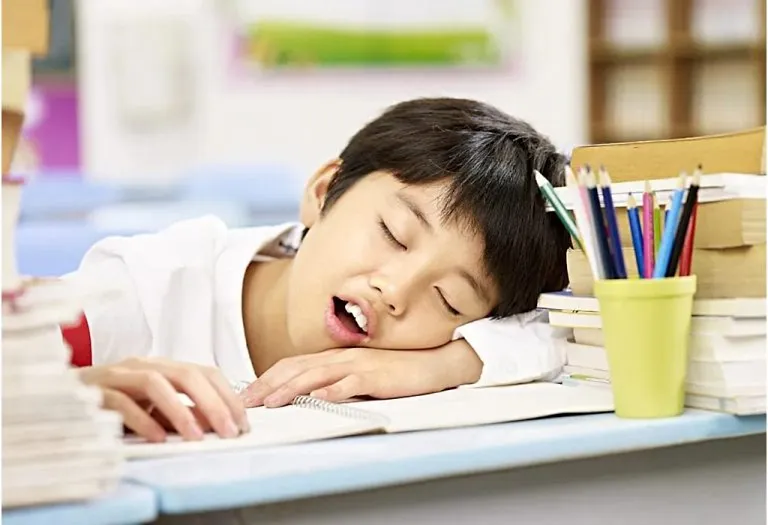
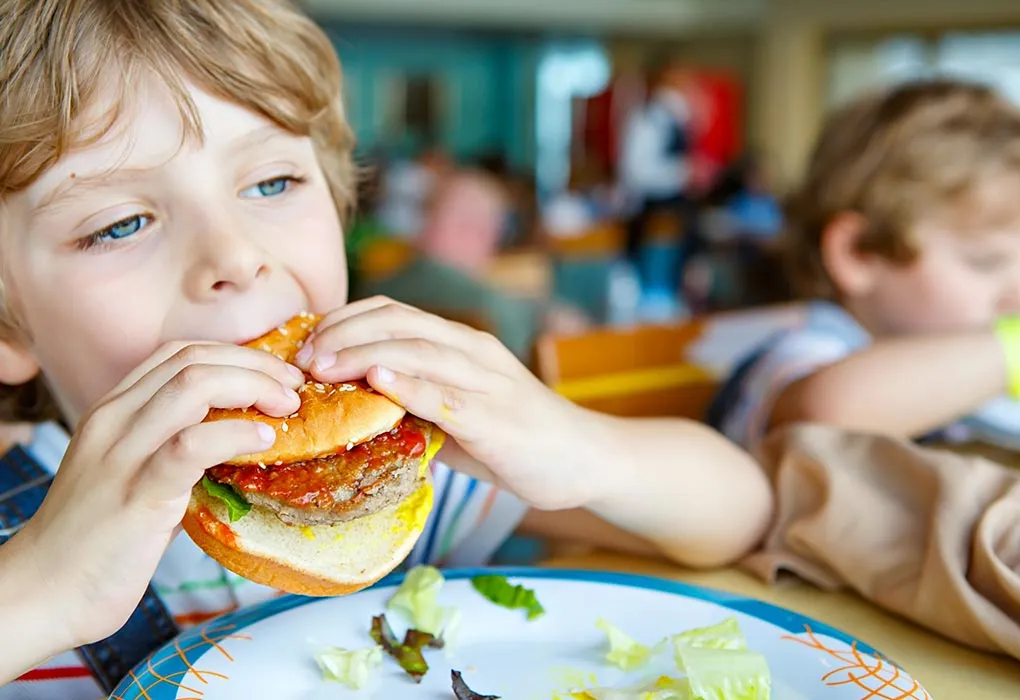
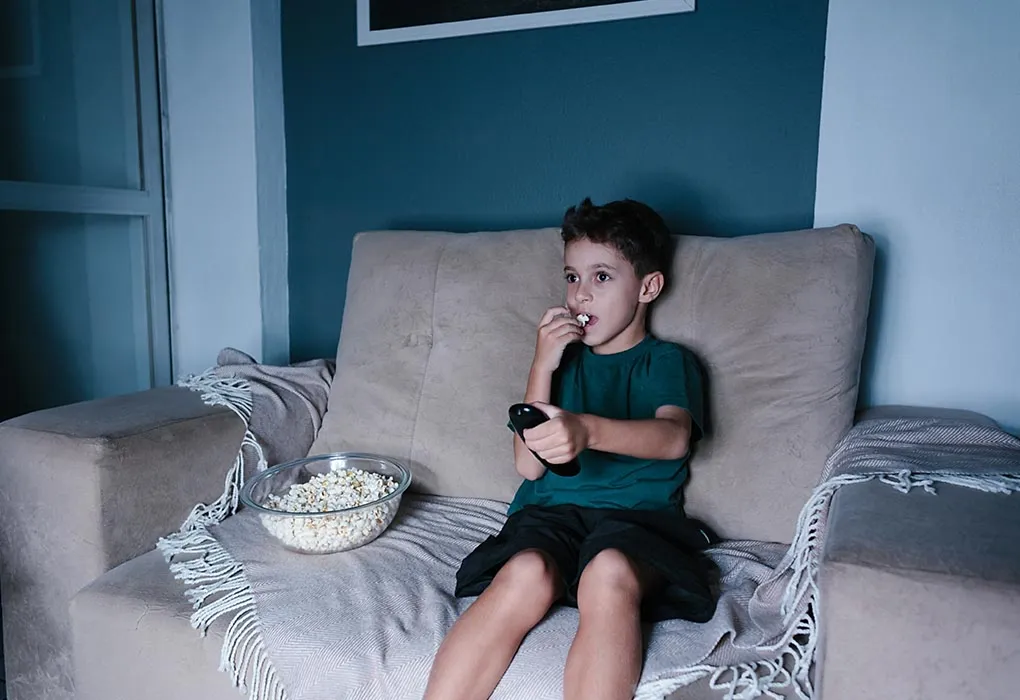



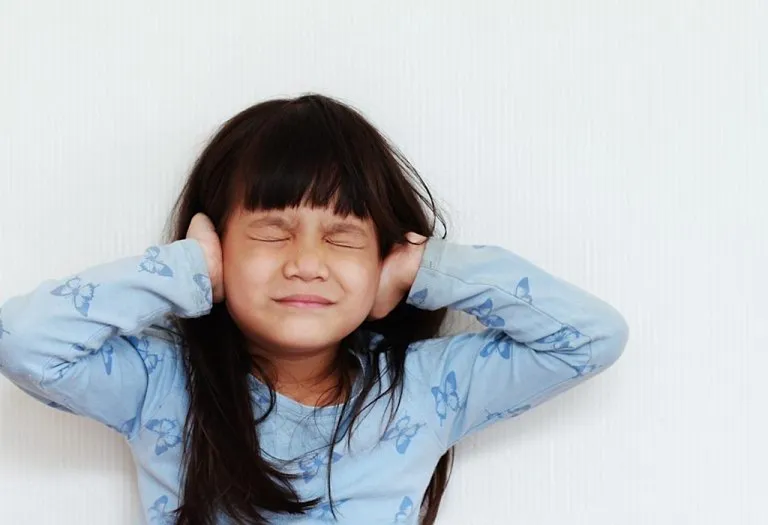

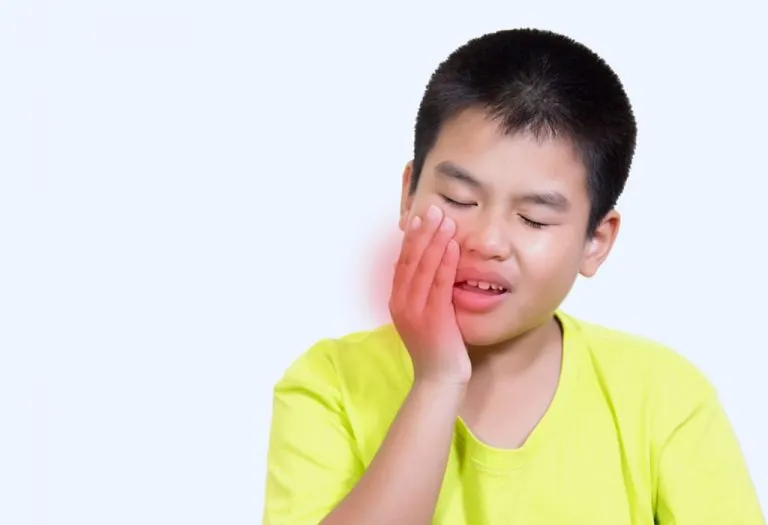
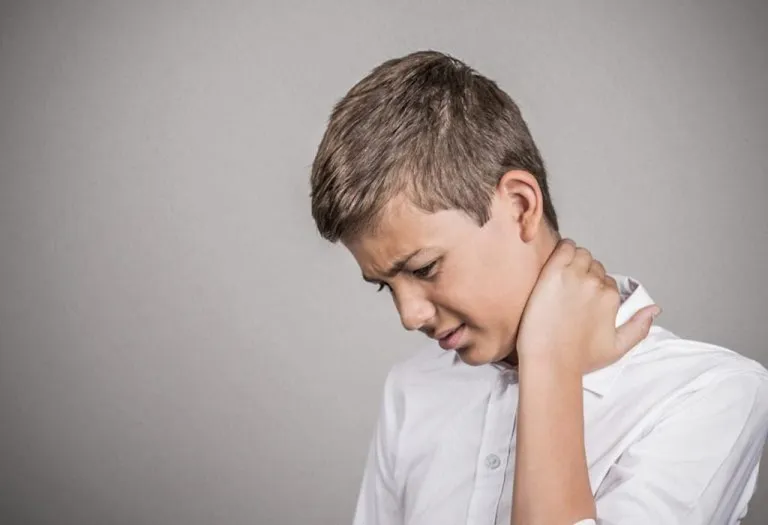


.svg)
















